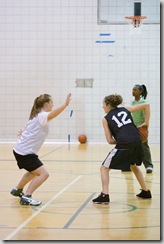 Despite available information, parents are little aware of concussion risks but support school policies to minimize them; most know other parents who would have young athletes return to play too soon
Despite available information, parents are little aware of concussion risks but support school policies to minimize them; most know other parents who would have young athletes return to play too soon
With growing media attention to concussions among athletes young and old, and recent actions of the National Football League to reduce dangers from multiple concussions among its players, the spotlight is now on what schools are doing to protect their student-athletes. Do parents feel that their kids are safe, and do parents agree with school policies?
The latest C.S. Mott Children’s Hospital National Poll on Children’s Health finds that nearly two-thirds of parents of young athletes, ages 12 – 17, worry that their children will get a concussion while playing school sports—yet half don’t know if their children’s school has a concussion policy.
Over the past few years, researchers have found that youth athletes are more likely to sustain concussions, and to take longer to recover from concussions, than adults. If a second concussion occurs before a child’s brain recovers from the first, there is a greater chance of long-term neurologic affects.
This poll, conducted in May 2010, also finds that more than one-third of parents of young athletes are unaware of the dangers of repeat concussions.
“Even though parents of youth athletes lack awareness about effects of repeat concussions, they demonstrate strong support for strategies to minimize the risk of concussion,” says Sarah J. Clark, research assistant professor of pediatrics at the University of Michigan, and associate director of the poll.
The majority of parents would strongly support the following school requirements:
• After a concussion, for athletes to be evaluated and cleared by a doctor before returning to sports – 84 percent
• For coaches to receive education about the risks of concussions – 81 percent
• After a concussion, for athletes to have a mandatory period of non-participation in sports – 71 percent
• Having a certified trainer onsite for practices and games – 67 percent
Parents are well aware of the pressure to allow young athletes to continue playing, despite injury. In fact, 62 percent of respondents know of a parent who would have a young athlete return to school sports too soon after a concussion, and 50 percent know of a coach who would have a player return too soon.
“These figures are not surprising to those who work in youth sports,” says Clark. “However, the latest research makes it clear that early return to play after a concussion is very risky.”
High school athletic organizations, injury prevention groups and professional sports leagues have become increasingly active in promoting policies to minimize the risks of repeat concussions among young athletes. Typically, policies include educating coaches, requiring removal from play of any player with concussion-like symptoms, and requiring that a health care professional clear the athlete before he or she returns to play. However, not all policies include educating parents, which Clark views as a missed opportunity.
“Parent involvement in guarding against repeat concussions is critical. Most concussions do not result in loss of consciousness, and symptoms may not occur until several hours after the injury. If young athletes are afraid of losing playing time, they may not be honest with the coach or trainer about their symptoms,” says Clark.
Parents are in a unique position to recognize concussion signs and symptoms that occur outside of school, and to work with coaches, trainers, and other health care personnel to ensure that their child is appropriately monitored throughout his or her recovery and return to play.
Some common signs and symptoms of a concussion include: confusion, loss of memory (amnesia), headache, dizziness, a sensation of the world spinning (vertigo), imbalance, lack of awareness of surroundings, and nausea and vomiting. If these symptoms appear after a head injury, consult a medical professional promptly for a full evaluation.
Resources:
A parent’s guide to concussions in sports, from the National Federation of State High School Associations:
http://www.nfhs.org/WorkArea/DownloadAsset.aspx?id=3994
Jeffrey Kutcher, M.D., director of Michigan NeuroSport program and concussion expert:
http://www2.med.umich.edu/prmc/media/newsroom/details.cfm?ID=1332
Michigan NeuroSport Program:
http://www2.med.umich.edu/departments/neurosport/
Concussion in sports resources from the CDC http://www.cdc.gov/concussion/sports/resources.html
Source: University of Michigan Health System
Report: http://www.med.umich.edu/mott/npch/pdf/061410report.pdf
